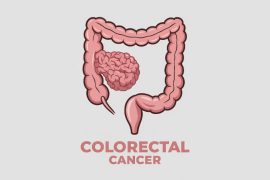Cervical cancer is one of the most common cancers among women. Though it can often be prevented or treated successfully if found early. Knowing the early signs of cervical cancer can make a big difference in catching it before it progresses. Many women may not experience symptoms in the early stages, but when symptoms do appear, they should never be ignored. In this article, we will go over the early signs of cervical cancer and what you can do to protect your health.
Why Detecting Cervical Cancer is Key
On Cervical Cancer Day, it’s important to raise awareness about this condition and encourage women to learn about the early signs and the importance of regular screenings for prevention. When diagnosed in its initial stages, the chances of successful treatment are much higher. Cervical cancer often develops slowly, starting with pre-cancerous changes in the cells of the cervix. These changes can be detected through regular screenings before they turn into cancer. By recognizing the early warning signs and taking action, you can help prevent the disease from progressing and safeguard your health.
Common Early Signs of Cervical Cancer
While cervical cancer may not always show symptoms in the beginning, there are some early signs that you should watch out for. If you notice any of these symptoms, it’s important to seek medical advice:
- Unusual Vaginal Bleeding: One of the most common early signs is unusual vaginal bleeding. This may include bleeding between periods, after intercourse, or after menopause. Any type of bleeding that seems unusual for you should be checked by a doctor.
- Pelvic Pain: If you experience pelvic or lower abdominal pain that is unrelated to your menstrual cycle, it may be a warning indication. If the pain persists or feels unusual, it’s important that you pay attention.
- Unexplained Vaginal Discharge: Vaginal discharge that is watery, pink, or smells bad could be a sign of cervical cancer. Any changes in your usual discharge should be monitored.
- Pain During Intercourse: Experiencing discomfort or pain during intercourse could be a sign of cervical issues, including cervical cancer.
Painful or Difficult Urination: If you feel pain or discomfort when urinating or notice changes in your urinary habits, it could be a sign that something is wrong with your cervix.
It’s crucial to have these early indicators checked out to rule out any serious illnesses, even if they might not necessarily indicate cervical cancer.
Risk Factors to Keep in Mind
While any woman can develop cervical cancer, some factors may increase your risk. Here are some of the common risk factors to be aware of:
- HPV Infection: Human papillomavirus (HPV) is one of the leading causes of cervical cancer. Certain strains of HPV can lead to changes in the cervical cells, which may develop into cancer over time.
- Smoking: Smoking increases the risk of cervical cancer by weakening the immune system and making it more difficult for the body to fight against HPV infections.
- Weakened Immune System: If your immune system is weakened by another health condition or medications, your body may be less able to fight off HPV infections, which can lead to cervical cancer.
- Multiple Pregnancies: Cervical cancer risk may be somewhat increased for women who have had multiple full-term pregnancies.
- Family History: If someone in your family has had cervical cancer, you may have a higher risk of developing the disease.
Knowing these risk factors can help you stay more vigilant about your health and take steps to reduce your chances of developing cervical cancer.
The Importance of Regular Screenings
Regular screenings can be one of the best ways to catch cervical cancer early. Screenings can detect abnormal changes in the cervix before they turn into cancer. Two common tests are:
- Pap Smear: A Pap smear checks your cervix for any abnormal cell changes that could turn into cancer if not treated. Regular Pap tests can catch these changes early, making treatment much more effective.
- HPV Test: This test checks for the presence of the HPV virus, which may lead to cervical cancer. It’s often done alongside a Pap smear, especially for women over 30.
Regular screenings are essential for women of all ages, especially if you have any of the risk factors mentioned earlier. Talk to your doctor about how often you should be screened.
Tips to Prevent Cervical Cancer
While you can’t completely prevent cervical cancer, there are several steps you can take to lower your risk:
- Get Vaccinated: There are vaccines to protect against certain types of HPV that may cause cervical cancer. If you’re eligible, you can consider getting vaccinated.
- Practice Safe Sex: Your risk of contracting HPV can be decreased by using condoms and limiting the number of sexual partners you have.
- Quit Smoking: If you smoke, quitting can help lower your risk of cervical cancer and improve your overall health.
- Maintain a Healthy Immune System: A strong immune system may help your body in fighting off infections such as HPV. Eating a good diet, exercising, and controlling stress can all help to improve your immune system.
- Regular Screenings: As mentioned earlier, regular Pap smears and HPV tests are key to catching cervical cancer early and preventing it from progressing.
When Should You Seek Medical Help
If you notice any early signs of cervical cancer, don’t wait to get medical advice. Catching it early is really important for successful treatment. If you have a family history of cervical cancer or any risk factors, make sure to stay on top of your regular screenings.
And if you’re ever feeling unsure or worried about your symptoms, it’s always a good idea to talk to a doctor for peace of mind and a proper check-up.
Conclusion
Cervical cancer is a serious health concern, but it can be managed effectively with early detection and preventive care. Watch for early signs like unusual bleeding, pelvic pain, or abnormal discharge, and don’t hesitate to see your healthcare provider if something feels wrong.
References:
https://www.who.int/news-room/fact-sheets/detail/cervical-cancer#:~:text=Precancers%20rarely%20cause%20symptoms%2C%20which,samples%20collected%20by%20healthcare%20providers.
https://www.mayoclinic.org/diseases-conditions/cervical-cancer/symptoms-causes/syc-20352501#:~:text=Vaginal%20bleeding%20after%20intercourse%2C%20between,pain%20or%20pain%20during%20intercourse.
https://www.urmc.rochester.edu/encyclopedia/content.aspx?contenttypeid=34&contentid=17227-1#:~:text=Having%20sex%20at%20a%20young,certain%20doesn’t%20have%20HPV.
https://www.cdc.gov/cervical-cancer/screening/index.html#:~:text=Screening%20tests,cell%20changes%20on%20the%20cervix.
https://www.cdc.gov/cervical-cancer/prevention/index.html





Comments are closed.